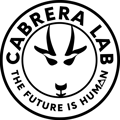Ecology, First Wave, Systems
Adapted from the article originally written by Anika Shorna
for the Cabrera's Cornell University, System Thinking in Public Affairs Course
 Figure 1: The Flow of Ecology
Figure 1: The Flow of Ecology
Summary
Ecology is the study of how organisms in the biosphere relate to one another and to their surroundings. The study of ecology is needed to understand the key parts of the biosphere, and make predictions about the future [1]. There are five levels in ecology which are individual organism, populations (made by the individuals), communities (when populations come together), ecosystem (community together), and planet earth (biosphere) [1]. The first person to invent the idea of ecology was Aldo Leopold in 1945. Around the 1960s Howard T. Odum, an American ecologist, invented the idea of systems ecology [1]. Odum believed that ecology should be studied in aggregate level and not in isolation. The main idea of systems ecology is to understand the relationship between the components in the ecosystem, and also to understand the relationship of one ecosystem with other ecosystems [2].
Polar bears are different from camels. If there’s a rise in temperature, it will cause the possible extinction of polar bears. However, this increasing temperature may not be as much of a big threat to the desert camels. Polar bears are the indicator animals of their environment, and their extinction will lead to no algae. No algae will lead to no invertebrates, and this will lead to no fish [7]. Ecologists study these relationships to understand how everything is interconnected, and for every action what will be the reaction. The polar bear example was to show how ecologists think like systems thinkers where there are four steps- 1) Distinctions 2) Systems 3) Relationships 4) Perspectives [5]. Ecologists first see the difference between the animal that survives in ice and the one that doesn’t; how polar bears are a part of the whole Arctic ecosystem and what is the reaction of arctic ice melting on the whole system. The main fields of ecology are: marine, biological, statistical and vegetation ecology [4].
Sectors where ecology can be used in: Improving the environment, public health, natural resource management, forestry solutions, agriculture, etc. [4]
Pros
- The work can be inexpensive and rely on pre-existing data.
- Analysis is relatively easy to understand.
- One area of research can make way for further research.
- The study of ecology helps us in understanding bigger problems and threats (ex: climate change) to our survival.
Cons
-
There is limited opportunity of this field for growth.
-
Lack of funding and misunderstanding in general population.
-
Less popular field; people don’t want to study ecology as a profession in this field does not pay much.
Few famous research scientists in ecology:
- Rachel Carson; she was an American marine biologist. Her writings are credited with advancing the environment movement.
- Nancy A. Moran; an American evolutionary biologist and ecologist. Her interest was in evolution and behavior.
- Robert Haridng Whittaker; an American plant ecologist. He led and developed gradient analysis to address questions in plant community ecology. He also helped in early ideas of vegetation development.
- Nicholas Hughes; a fisheries biologist who was an expert in stream salmonid ecology.
- Pamela A. Matson; she is known as the pioneer of the field of environmental science. She used to teach earth sciences and environmental studies [6].
For further study:
- What is Ecology. Coursera.
https://www.coursera.org/lecture/ecology/1-1-what-is-ecology-TBSfz
Jorgensen, Sven Erok (2012). Introduction to Systems Ecology.
2. Dyne, George M. Van (1966). Ecosystems, Systems Ecology and Systems Ecologists.
3. What is Ecology. Ecological Society of America. https://www.esa.org/about/what-does-ecology-have-to-do-with-me
4. Cabrera D., Cabrera L. (2019) Complexity and Systems Thinking Models in Education: Applications for Leaders. In: Spector M., Lockee B., Childress M. (eds) Learning, Design, and Technology. Springer, Cham5. .Famous ecologists. Oxford Bibliographies. https://www.oxfordbibliographies.com/page/772
6. Cochrane Polar Bear Habitat (2017), What Would Happen if Polar Bears Went Extinct?
https://polarbearhabitat.ca/happen-polar-bears-went-extinct/
